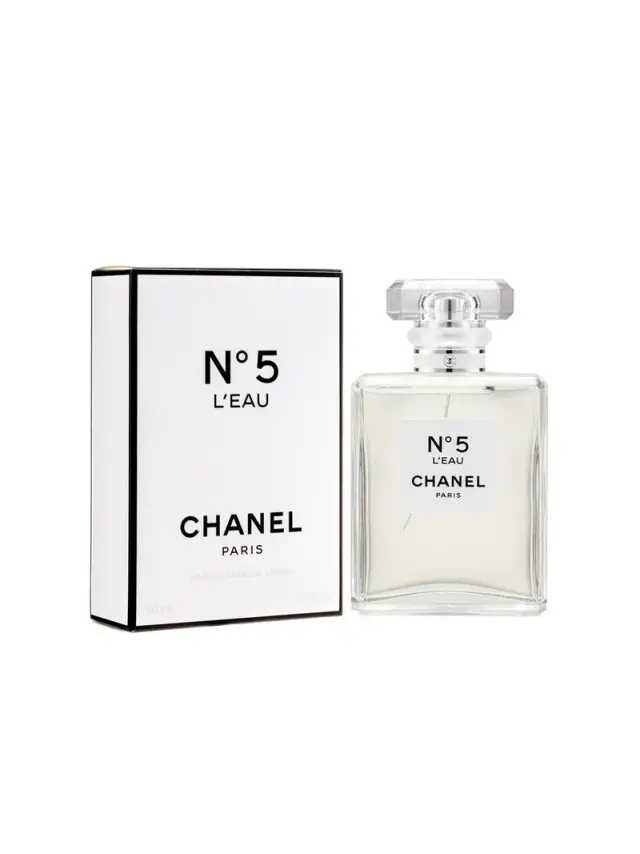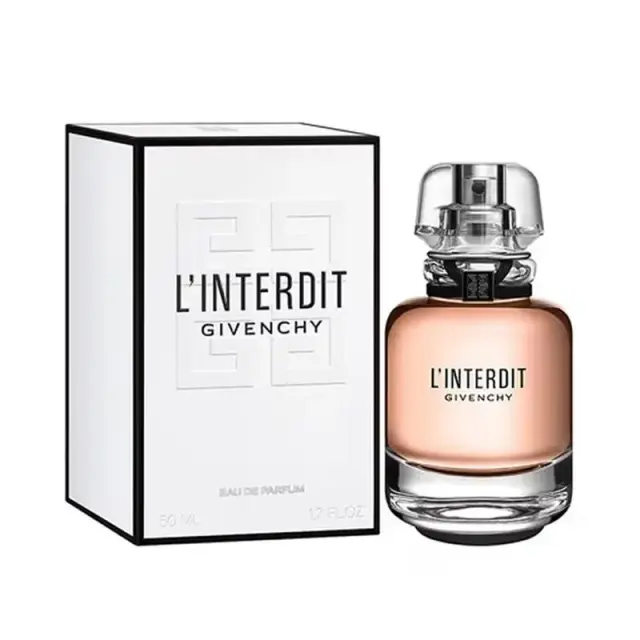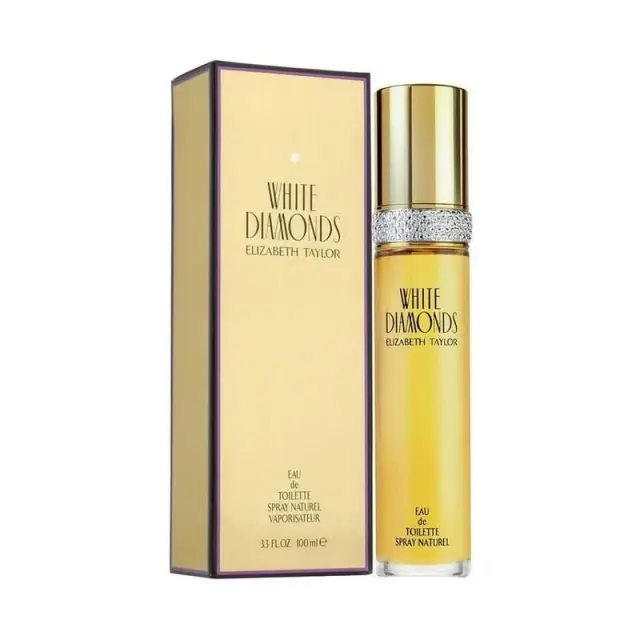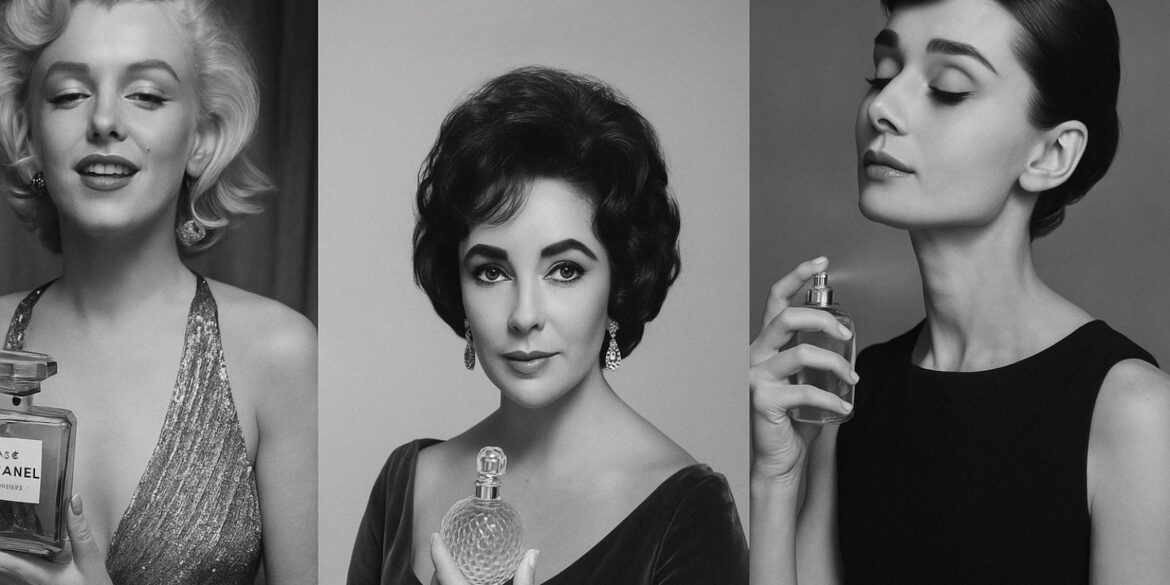We all have that one scent (or more) that we cherish above all others. One that brings back a specific memory, a particular feeling, or a moment in time. But what happens when that scent is linked to an icon?
The initial success of celebrity fragrance endorsements stemmed from several factors that converged in the late 20th century. Celebrities held a level of aspirational power that was arguably stronger than it is today. They were seen as glamorous, unattainable figures whose lifestyles were meticulously crafted and presented in magazines and on television by teams of PR specialists. Consumers were eager to emulate them, and owning a fragrance endorsed by their favourite star felt like a small way to access that world of luxury and have that star power rub off on them. Keep in mind that this was all pre-social media, when the marketing strategies were often simpler and more effective, relying on traditional media channels to create a sense of exclusivity and desire around the celebrity and the fragrance.
The formula was perfect: aspirational figures, a relatively uncluttered market, and effective marketing, all combining to create a powerful incentive for consumers to buy into the promise of celebrity-endorsed scents.
The Accidental Endorsement
All stories have to start somewhere, and in this case, it was a bedtime confession. In 1952, Marilyn Monroe, at the height of her fame, famously told Life magazine that all she wore to bed was “Chanel No. 5.” This seemingly innocent remark became one of the most legendary endorsements of all time, solidifying Chanel No. 5’s status as the ultimate symbol of elegance and timeless, classic hollywood beauty.

Chanel, of course, capitalised on this “accidental” endorsement. While Monroe wasn’t officially paid to be the face of the fragrance, her words became an integral part of Chanel No. 5’s narrative. It cemented the idea that this was the perfume that would bring you closer to becoming more like the one woman, who to this day is considered one of the sexiest women to have ever walked the earth.
Givenchy’s Muse Unpaid Affection for L’Interdit
Fast forward a few years, and we find another iconic partnership: Hubert de Givenchy and Audrey Hepburn. Givenchy created L’Interdit (French for “forbidden”) specifically for his beloved muse. Legend has it that when Givenchy decided to launch the fragrance commercially, Hepburn initially exclaimed, “Mais, je vous l’interdis!” (“But, I forbid you!”).

While Hepburn was the undisputed face of L’Interdit and its embodiment, she wasn’t initially compensated for her association with the fragrance. This underscores a crucial distinction: there’s a world of difference between being inspired by someone and paying them to represent your brand.
The Dawn of Paid Partnerships
The title of the first official celebrity-endorsed fragrance often goes to Coty’s fragrance with Sophia Loren. While significant, this partnership didn’t achieve the same level of widespread success as the one that followed, setting the stage for the era of mega-deals and fragrance empires.
The actual turning point, the moment the fragrance industry truly understood the power of a celebrity endorsement, came with the partnership between Elizabeth Taylor and Elizabeth Arden. Taylor, a screen legend, was more than just a pretty face; she was a shrewd businesswoman.
In 1987, she launched Passion, a rich, floral amber fragrance that perfectly captured her persona. It was a massive success. But it was her second fragrance, White Diamonds (1991), that was her real success in the fragrance industry. White Diamonds became a global phenomenon, an enduring classic that remains a top-selling celebrity fragrance to this day.

Here’s why Elizabeth Taylor’s fragrance success was so significant:
- Authenticity: Taylor genuinely loved fragrance and wore it liberally. This passion translated to genuine enthusiasm in her endorsements, making her feel relatable despite her larger-than-life image.
- Active Involvement: Taylor wasn’t just lending her name; she was actively involved in the creation and marketing of her fragrances. She understood her brand and how to connect with her audience.
- Smart Business Deals: Taylor didn’t just take a fee; she negotiated significant ownership stakes in her fragrance empire. This allowed her to reap the rewards of her hard work and contributed substantially to her vast fortune.
Elizabeth Taylor’s foray into fragrance was a game-changer. It proved that a celebrity endorsement, when executed correctly, can create a lasting legacy and generate immense wealth. She paved the way for countless celebrities to follow, turning the fragrance industry into a multi-billion-dollar juggernaut.
Does Celebrity Still Sell?
Today, the fragrance landscape is saturated with celebrity endorsements. From pop stars to reality TV personalities, everyone seems to have their own scent. But do celebrity endorsements hold the same power they once did?
The answer is complex. While a big name can still generate initial buzz and sales, the market is more discerning. Consumers are increasingly looking for quality, originality, and authenticity. The “celebrity” alone isn’t enough to guarantee success.
The rise of niche perfumeries, influencer marketing, and online reviews has given consumers more power and access to information than ever before. They are more likely to trust the opinions of their friends and seek out unique scents that reflect their individuality, rather than just imitating a celebrity’s image.
While the glamorous effect of celebrities hasn’t entirely faded, today’s fragrance industry demands more than just a famous face. Consumers crave genuine connection, innovative scents, and a brand story that resonates with their values. The legacy of Marilyn, Audrey, and Elizabeth lives on, but the rules of the game have undoubtedly changed.
You can find all these perfumes and more at V Perfumes, offering the best prices in the UAE.




